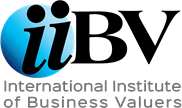by Peter Ott
April 22, 2017, Belgrade – The National Association of Valuers of Serbia (“NAVS”) and President Danjijela Ilić, FRICS REV and President of the Board, Vesna Stefanović, REV, ASA, hosted the members of The European Group of Valuers’ Association (“TEGoVA”) in Serbia April 20 to 23, 2017. Leaders representing 34 countries, 63 member associations and 70,000 qualified valuers gathered in the historic city of Belgrade to attend TEGoVA’s Spring General Meeting that covered valuation sessions, General Assembly and meetings of many working groups, committees and professional boards.
Chair of TEGoVA, Krzysztof Grzesik FRICS REV, opened the conference by reviewing the Association’s accomplishments including the development of the European Valuation Standards – 2016 and the establishment of European Codes of Measurement and Ethics. He also highlighted the pan-European Recognised European Valuer (“REV”) qualification that continues to mature and achieve even more status.
Next, the recently enacted statute on valuer licensing in Serbia was reviewed. For three years NAVS has worked closely with the special working group in Serbia to develop, promote and enact under the Serbian National Assembly the Law on Real Estate Valuers. This law strives to ensure financial stability and provide for the licensing of property valuers from leading valuation professional organization designations. Influenced by European Union (“EU”) law, and European Valuation Standards, the Serbian law is also consistent with International Valuation Standards and RICS.
Michael MacBean, Advisor to TEGoVA and Director General of the European Property Federation provided a lively review of the consequences of an ever-closer union with Europe. “The Four Freedoms – free movement of capital, services, goods and persons – are the bedrock of the EU Internal Market, and all impact real estate,” MacBean stated. All Internal Market laws would need to be in place by day one should Serbia desire possible membership into the European Union.
Richard Grover, visiting Professor of Oxford Brookes University – United Kingdom, noted the modern trends in valuer education, highlighting the key importance third parties place on valuation products and the need for consumer protection. “Quality assurance in valuation is achieved by controlling who can undertake valuation,” Professor Brookes asserted. He then reviewed ideas on how quality in valuation is achieved, the role of education and the ever-expanding level of education and skills required by valuation graduates.
Scott Robinson, MAI, SRA, AI-GRS and Past President of an American Appraisal body, described the valuation licensing process in the United States and the challenges to the profession brought about by exceptions and loopholes from licensing, commoditization of services, “inflexibility” in standards and the impact of technology on valuation. He emphasized the need for regulatory modernization in the US following the almost 20 years of layers of regulations.
At its General Assembly meeting TEGoVA held Board elections among country delegates and members were elected for a three-year term. Four new members from Bulgaria, Ukraine, Cyprus and Montenegro were also admitted to the Association. Krzysztof Grzesik FRIC REV was reappointed as Chair of TEGoVA. Following these formalities, the General Assembly reviewed the work being undertaken by TEGoVA on the current state of Automatic Valuation Methods (“AVMs”), their applicability within the profession and the risks AVMs potentially introduce to quality valuations.
iiBV Board member Peter Ott was a guest at TEGoVA’s Spring meetings. Through its partnership with NAVS, iiBV’s first-class professional business and intangible valuation education are available in South-Eastern European markets.
The iiBV, a not-for-profit organization, works with its member associations to lead business valuation professional education by providing educational opportunities, promoting consistent professional ethics and standards, facilitating the exchange of information and ideas, and encouraging international cooperation and communication.

